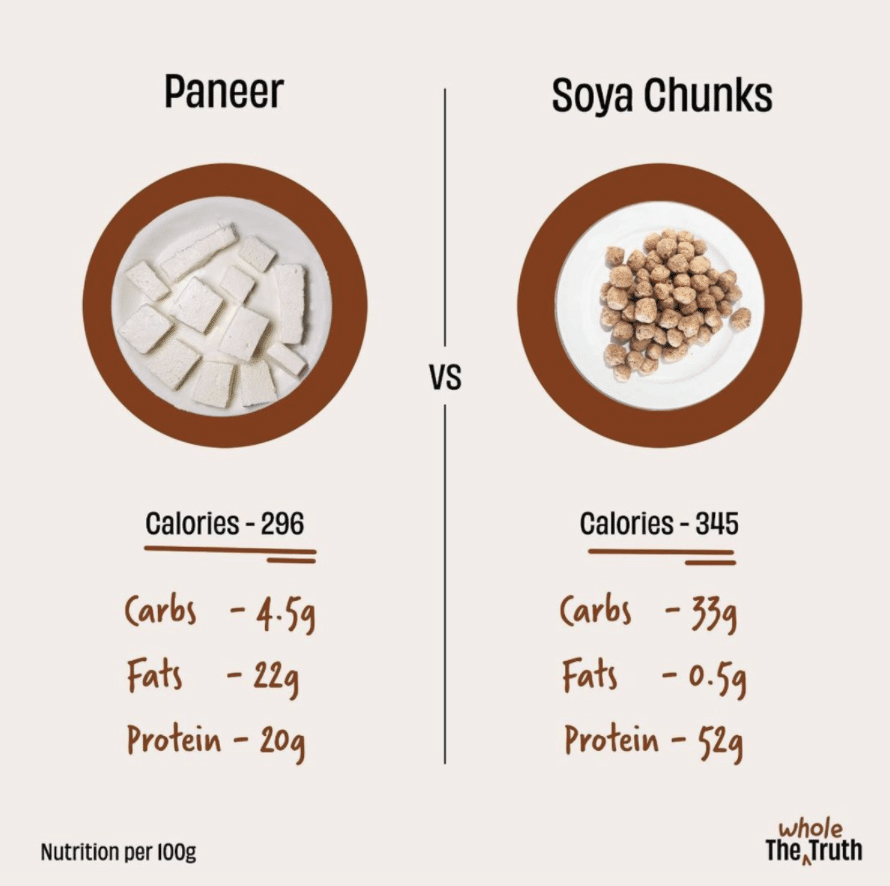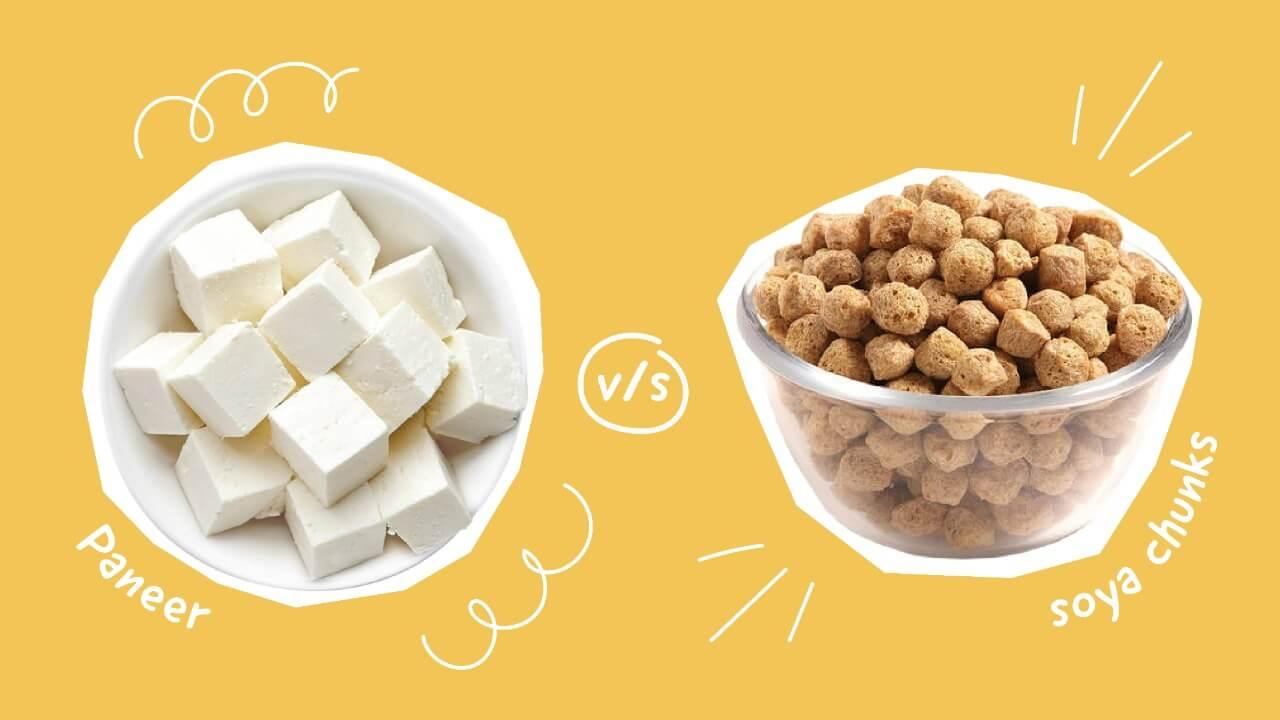Paneer vs Soya Chunks: Which is the best vegetarian protein source?
The most trustworthy source of food and
fitness journalism in the country.
Paneer vs Soya Chunks, which one should you choose?
Soya (chunks granules) is a great, vegetarian source of protein. And usually, it is seen as a calorie-light replacement for paneer.
But did you know, 100 gms of soya has more calories than 100gm paneer! Whaaaat! How did that happen?
Well, the answer lies in serving size. If you’ve read our last blog on serving sizes, you know that is the key to getting not only the right amount of calories in but also the right amount of nutrition in this case.
Yes, 100gm of soya chunks have more calories than paneer. But who is eating 100gm of soya!
One full katori of soya sabzi is barely 15gm of chunks. And that’s ~52calories from soya. That’s all! That’s why soya is light. It fluffs up and fills you up, in much lesser calories.
But wait, that also means that in one serving, there are only ~7gms of protein! That’s far less than paneer!
Here’s the deal.
Paneer and Soya Chunks – Nutritional Values & Comparison (per 100g)

Paneer vs Soya Chunks per 100 gram
Usually, when you make a sabzi out of paneer, you eat at least 100gm, if not more. That means 20gm of protein but also 300 calories. The same for Soya chunks is 1/3rd the protein but with 1/6th the calories. So you decide, what are you optimizing for?
How to choose the best vegetarian protein source?
If you don’t care much about calories, but you want to build muscle or just hit your protein target, go for paneer.
But if your primary concern is to lose weight, and hence you want to fill up your tummy in the least calories, a soya is a great option that gives you decent protein too!
Of course, soya has many other nutrients too (B Vitamins, fiber, potassium, magnesium…to name a few). And it’s one of the few, high-quality veg protein source (complete amino acid profile – which means it has all 9 essential amino acids).
So if you’re vegan, or lactose intolerant, soya is a great option.
PS: A lot has been said about estrogen in soya. Soy does have a high concentration of isoflavones, a type of plant estrogen (phytoestrogen) that is similar in function to human estrogen but with much weaker effects. So no, it won’t make you more feminine.
Another great vegetarian protein source is whey protein. Its often misunderstood as a steroid, but its made from milk . If you want to know more on whey protein and how much to consume click here.
Frequently Asked Questions (FAQs)
Which is the best vegetarian protein source for muscle building?
If you don’t care much about calories, but you want to build muscle or just hit your protein target, go for paneer.
What foods are high in protein but low in calories?
Soya is a good source that is high in protein and low in calories. If your primary concern is to lose weight, and hence you want to fill up your tummy in the least calories, soya is a great option.
How much nutrition does soya chunks have per 100g?
Soya chunks has many nutrient like B Vitamins, fiber, potassium, magnesium…to name a few. And it’s one of the few, high-quality veg protein source (complete amino acid profile – which means it has all 9 essential amino acids).
Per 100g of soya chunks has 345 calories, 33g carbs, 0.5g fat and 52g protein.Should you consume soyabean chunks for weight loss?
If your main aim is to lose weight, eat soya chunks. It will help you fill up your tummy in the least calories, and soya is a great option that gives you decent protein too!
